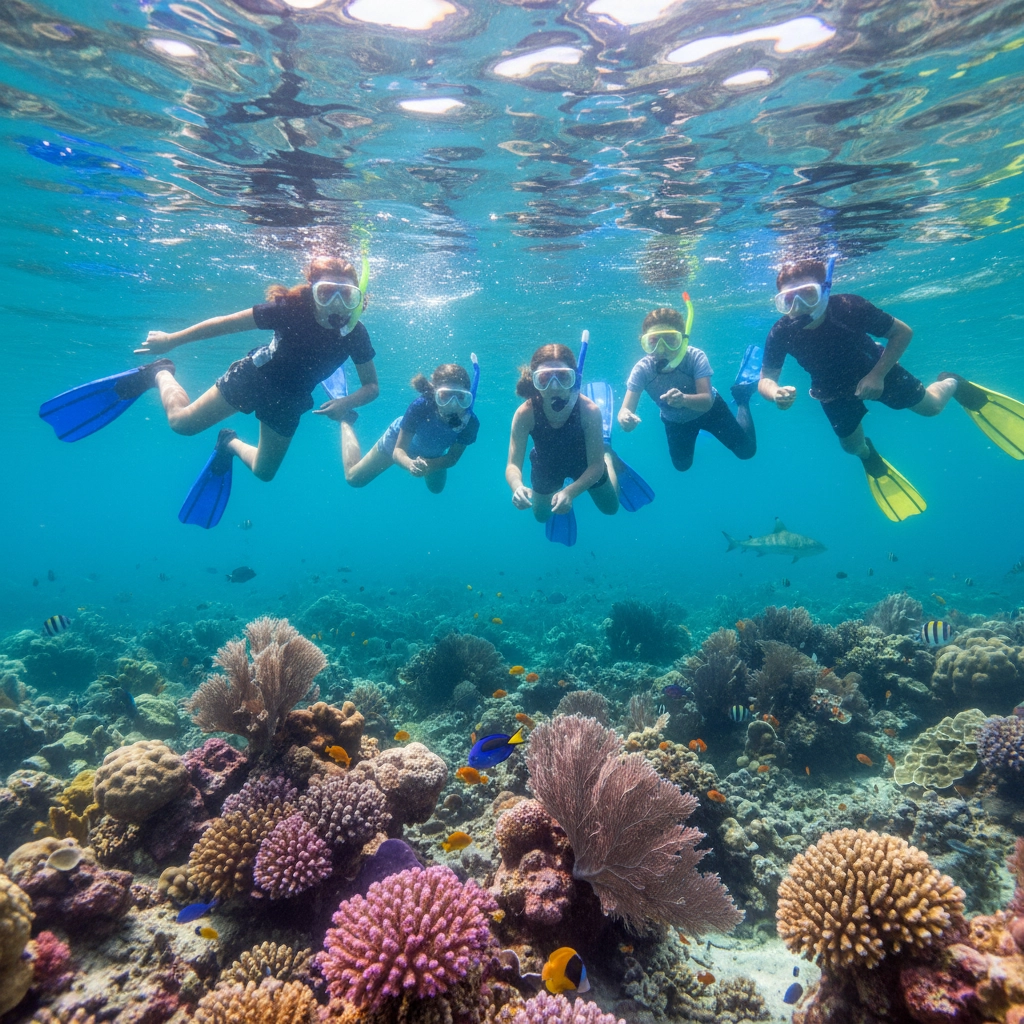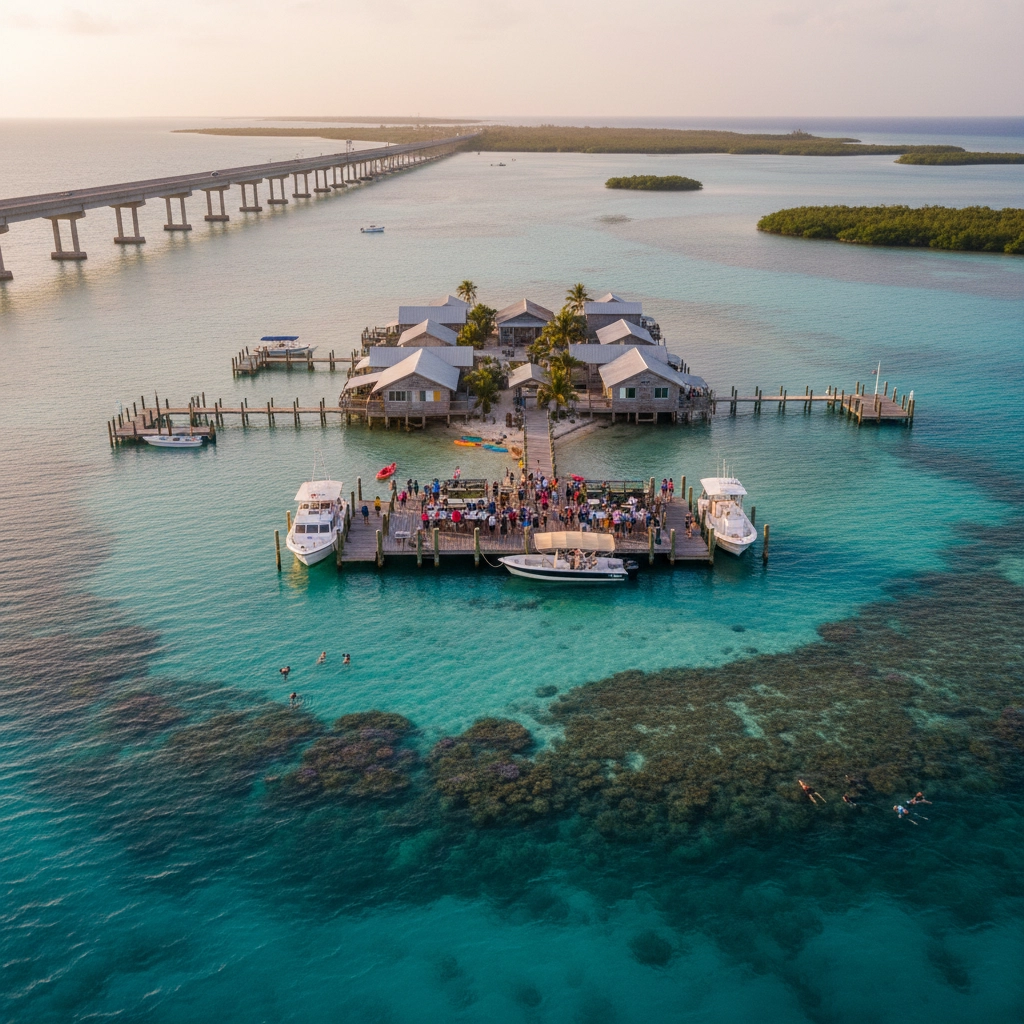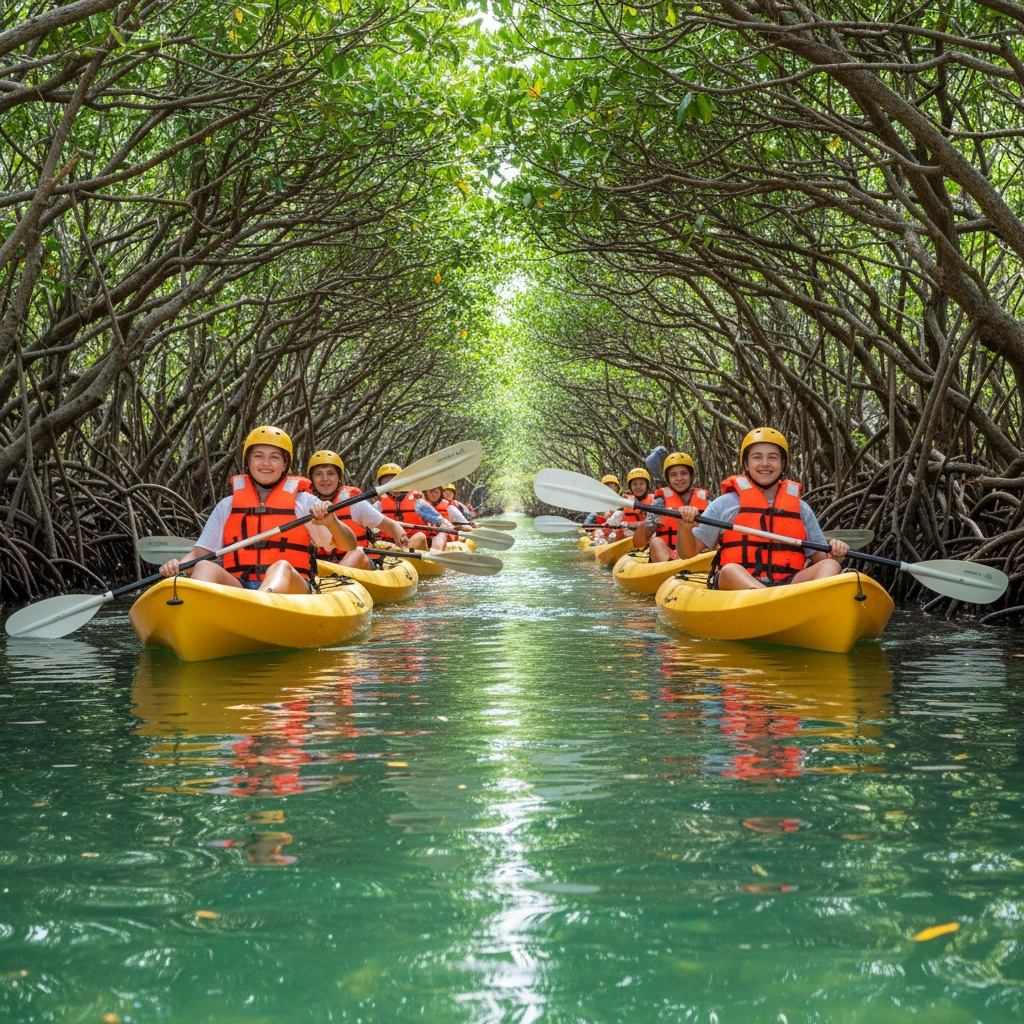5 Steps How to Plan an Unforgettable School Science Trip to the Florida Keys (Easy Guide for Teachers)
- Caleb Mullenix
- Nov 2, 2025
- 6 min read
Planning a successful science expedition to the Florida Keys requires meticulous preparation, strategic coordination, and unwavering attention to student safety. The Florida Keys represent one of North America's most extraordinary living laboratories, where coral reefs, seagrass beds, and mangrove ecosystems converge to create unparalleled opportunities for hands-on marine science education. Ensuring your students experience the full educational potential of this unique destination while maintaining the highest safety standards demands careful, systematic planning.
Follow these five comprehensive steps to organize a transformative educational experience that will inspire your students to become conservation champions and deepen their understanding of marine ecosystems.
Step 1: Define Learning Objectives and Establish Curriculum Alignment
Begin by identifying specific, measurable learning outcomes that align with your curriculum standards and grade-level requirements. Determine which marine science concepts will serve as the foundation for your expedition: whether coral reef ecosystems, marine biodiversity, ocean conservation strategies, climate change impacts, or marine research methodologies.
Create a detailed list of educational objectives that students must achieve during the expedition. Consider the following essential learning areas:
Marine ecosystem interactions: Understanding predator-prey relationships, symbiotic partnerships, and food web dynamics
Conservation science: Exploring coral restoration techniques, marine protected areas, and human impact mitigation
Scientific methodology: Participating in data collection, hypothesis formation, and field research protocols
Environmental stewardship: Developing personal connections to marine conservation and sustainable practices
Ensure your objectives accommodate different learning styles and ability levels within your student group. Tailor expectations appropriately for elementary, middle school, or high school participants, as comprehensive programs exist for all educational levels in the Florida Keys.
Document these objectives clearly and share them with students, parents, and chaperones well before departure. This preparation establishes clear expectations and helps participants understand the educational significance of their upcoming experience.

Step 2: Research and Select Key Educational Destinations
Conduct thorough research to identify educational facilities and natural sites that directly support your learning objectives. The Florida Keys offer exceptional diversity in marine science education venues, each providing unique learning opportunities and specialized programs.
Pigeon Key Marine Science Center stands out as a premier educational destination, operating on a private five-acre island with over two decades of experience hosting more than 30,000 participants from more than 1,000 schools. Students participate in supervised snorkeling expeditions aboard 35-foot catamarans to Sombrero Reef, part of the world's third-largest barrier coral reef system. The center's individualized approach ensures your group receives focused attention and customized programming.
Florida Keys Eco-Discovery Center provides free admission Wednesday through Saturday, 9 AM to 4 PM, featuring electronic microscopy capabilities and interactive exhibits that complement field experiences. This facility serves as an excellent starting point for introducing students to Keys ecosystems before venturing into the field.
Key West Aquarium, operating since 1935, offers hands-on learning through touch tank interactions with starfish, sea urchins, and marine invertebrates. Emphasize proper hand hygiene protocols to protect both student safety and animal welfare during these encounters.
Consider Dolphins Plus Marine Education Center for comprehensive programming that combines classroom instruction, laboratory work, and real lagoon settings. Mote Marine Lab provides authentic research participation opportunities, including coral restoration projects and water quality monitoring initiatives.
Select a combination of destinations that offer diverse learning experiences: snorkeling expeditions, nature trail exploration, kayaking through mangrove forests, and visits to conservation centers like the Turtle Hospital. This variety ensures comprehensive ecosystem understanding and accommodates different student interests and abilities.
Step 3: Establish Comprehensive Safety Protocols and Pre-Visit Preparation
Ensuring student safety throughout your Florida Keys expedition is of paramount importance and requires detailed planning, clear communication, and proactive risk management. Begin safety preparations months before departure to address all potential challenges and establish robust emergency procedures.
Water Safety Requirements: If snorkeling activities are planned, verify that all participating students meet swimming proficiency requirements. Require written documentation of swimming abilities and consider arranging pre-trip swimming assessments. Review aquatic safety guidelines with students, emphasizing proper snorkeling techniques, buddy system protocols, and emergency signals.
Medical Considerations: Collect comprehensive medical information for all participants, including allergies, medications, chronic conditions, and emergency contact details. Ensure adequate supervision ratios based on activity risk levels and student ages. Identify students with specific medical needs that may require modified participation or additional precautions.
Pre-Visit Educational Preparation: Develop engaging pre-visit activities that build foundational knowledge and generate excitement for the upcoming expedition. Obtain detailed maps of your selected destinations and share them with students to familiarize them with regional geography and ecosystems.
Create classroom activities focusing on marine ecosystem basics, coral bleaching processes, ocean acidification impacts, and apex predators' ecological roles. This preparation maximizes learning opportunities during field experiences and helps students ask informed questions during guided activities.
Communication Protocols: Establish clear communication procedures with parents, administrators, and emergency contacts. Share detailed itineraries, emergency contact information, and daily check-in schedules. Discuss emergency procedures thoroughly with all chaperones and students before departure.

Step 4: Coordinate Logistics and Finalize All Arrangements
Contact selected facilities directly to arrange specialized programs tailored to your specific curriculum needs and group requirements. Professional coordination ensures optimal educational experiences and addresses all logistical considerations systematically.
Program Scheduling and Costs: Comprehensive programs at facilities like Pigeon Key begin at $540 per person for three-day, two-night all-inclusive sessions, with teachers staying free. Determine whether day trips or overnight programs best suit your educational objectives and budget constraints. The Florida Keys offer greater scheduling flexibility compared to more remote destinations, allowing for customized itineraries.
Transportation Planning: Arrange reliable transportation that meets all safety requirements and accommodates your group size comfortably. Consider travel distances between destinations and plan adequate time for transitions. Factor in rest stops, meal times, and potential weather delays when creating your travel schedule.
Accommodation Arrangements: If overnight stays are required, research facilities that specialize in educational group accommodations. Ensure rooms meet safety standards, provide adequate supervision arrangements, and support your educational programming needs.
Equipment and Materials: Coordinate with facilities to understand what equipment they provide versus what your group must bring. Create detailed packing lists for students, including appropriate clothing for marine activities, sun protection, and any specialized equipment required for research participation.
Partnership Development: Inquire about partnerships with local conservation organizations that can provide mentorship from marine biologists and conservationists. These connections enhance authenticity and provide students with professional role models in marine science careers.
Confirm all arrangements in writing and establish backup plans for weather-related cancellations or other unforeseen circumstances. Create detailed contingency procedures that protect both educational objectives and student safety.

Step 5: Execute the Educational Experience and Plan Comprehensive Follow-Up
Transform your carefully planned expedition into a transformative learning experience through structured activities, meaningful reflection, and comprehensive follow-up that extends learning beyond the field trip timeframe.
Authentic Scientific Engagement: Ensure students participate in genuine scientific activities rather than passive observation. Facilitate active participation in data collection, analysis, and contribution to ongoing research projects. Students can engage in coral restoration techniques, marine animal behavior studies, water quality monitoring, citizen science initiatives, and beach cleanup projects.
Documentation and Reflection: Encourage students to maintain detailed field journals documenting observations, questions, and personal reflections. Provide structured templates that guide scientific observation and critical thinking. Organize regular group discussions that allow students to share discoveries and connect experiences to curriculum concepts.
Real-World Application: Connect field experiences to broader environmental conservation efforts and current scientific research. Help students understand how their observations and data contribute to larger scientific understanding and conservation initiatives.
Post-Expedition Integration: Plan comprehensive follow-up activities that reinforce and extend learning after returning to school. Have students analyze collected data, prepare presentations about their discoveries, and explore how their experiences connect to ongoing environmental challenges.
Facilitate reflection sessions that help students process their experiences and develop deeper connections to marine conservation. Encourage students to identify specific actions they can take to support ocean health and marine ecosystem protection in their daily lives.
Consider organizing community presentations where students can share their discoveries with families and community members, reinforcing learning while building public awareness of marine conservation issues.
For educators seeking professionally guided marine science expeditions that maximize educational impact while ensuring comprehensive safety protocols, Appleseed Expeditions specializes in transformative educational travel experiences. Their expert-led programs provide the structured support and educational excellence that make complex logistics manageable for busy educators.
Assessment and Evaluation: Develop comprehensive assessment strategies that measure achievement of your established learning objectives. Create rubrics that evaluate both scientific understanding and personal growth throughout the expedition experience.
By following these five systematic steps, your Florida Keys science expedition will provide students with transformative marine science education that inspires lifelong environmental stewardship and deepens scientific understanding. Careful preparation, unwavering attention to safety, and structured educational experiences ensure your expedition achieves its full educational potential while creating memories that students will treasure throughout their academic careers.
Remember that successful educational expeditions require months of preparation, clear communication with all stakeholders, and flexibility to adapt to changing conditions while maintaining core safety and educational standards. Your investment in thorough planning will be rewarded with an extraordinary learning experience that transforms student understanding of marine ecosystems and environmental conservation.



Comments